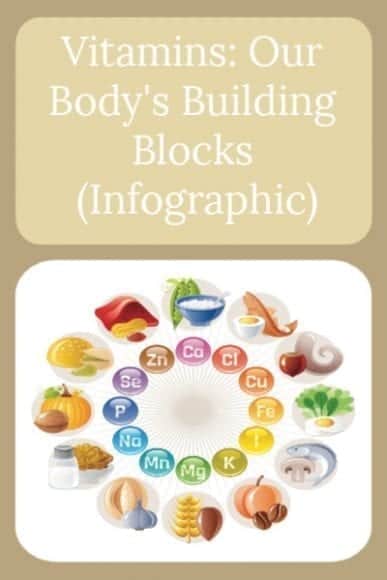Vitamins play a variety of roles in the proper functioning of the body. In the infographic below by MedAlertHelp, a site which reviews medical alert systems, you’ll see what your body needs and where you can find these essential nutrients

What Do Vitamins Do For Us?
Among other things, vitamins help maintain a healthy immune system, strong bones, improve blood circulation, assist in the proper functioning of the brain and nervous system, and balance cholesterol levels in the body. Basically speaking, ever bodily function needs these chemical
For this reason, you need to ensure that you’re ingesting the right amounts of each and every one to stay healthy, as well as to avoid the health issues associated with deficiencies.
Example: Vitamin B2
For instance, B2 (Riboflavin) has two significant roles. They are; assisting in the production of red blood cells and helping maintain an energy supply to the muscles.
Women need to consume 1,100 mcg each day. Meanwhile, men require 1,300 mcg of B2 on a daily basis. You can find Vitamin B2 in eggs, liver, mushrooms, and salmon.
If you suffer from chronic diarrhea or alcoholism, you may need to add supplements to your diet. These diseases hinder the absorption of B2 in your body. This makes you more vulnerable to vitamin B2 deficiency.
Example: Vitamin E
As for vitamin E, babies up to 12 months need to get between 4,000-5,000 mcg a day, children between 1-13 years need 75,000 mcg, and people aged 14 years and above need 15,000 mcg.
You can find vitamin E in sunflower seeds, almonds, and wheat germ oil, among other foods. It helps the body by fighting free radicals and preventing various diseases.
If you are concerned that you are not consuming the required amounts of all the nutrients you need, you have two options. Either you can go to your doctor or lookout for signs of
For example, easy bruising and wounds taking a long time to heal are two signs of vitamin C deficiency. Blood in your urine and excessive menstrual bleeding are signs of vitamin K deficiency.
For a comprehensive understanding of which vitamin-rich foods to eat and their desired quantities, check out the infographic below. Not only can you discover what you need but you will find out why you need it. In
And if you are struggling to get your kids to ensure your children get all the vitamins they need, we can help. Try to have them grow their own vegetables, eat less sugar or try our other hints and tips







